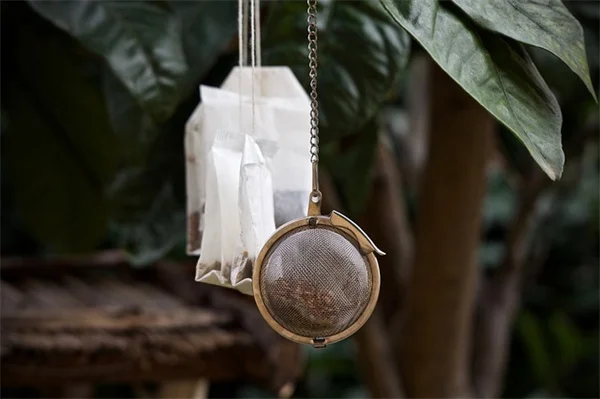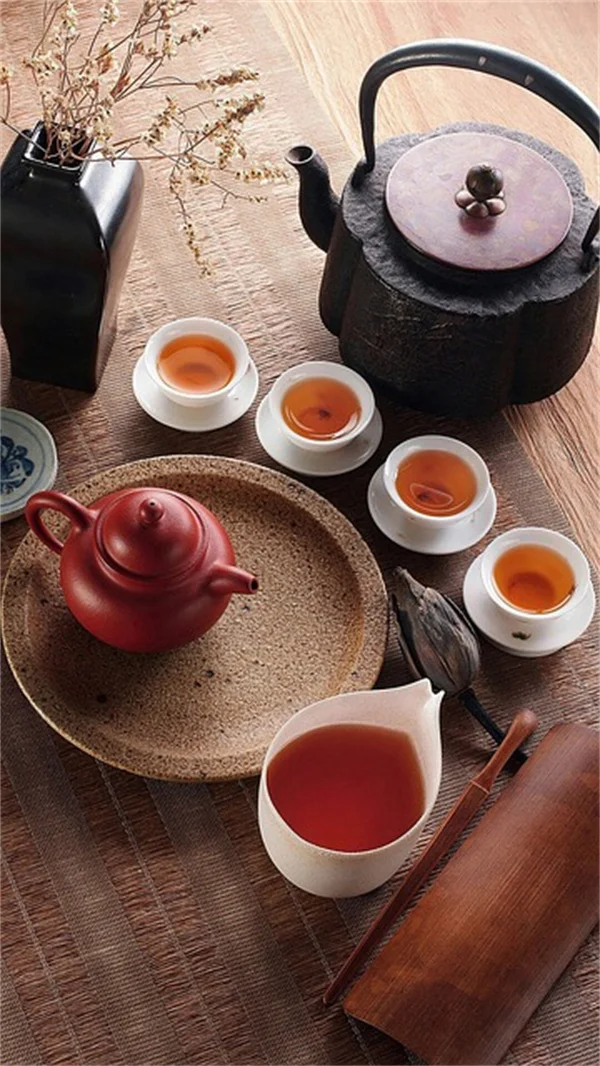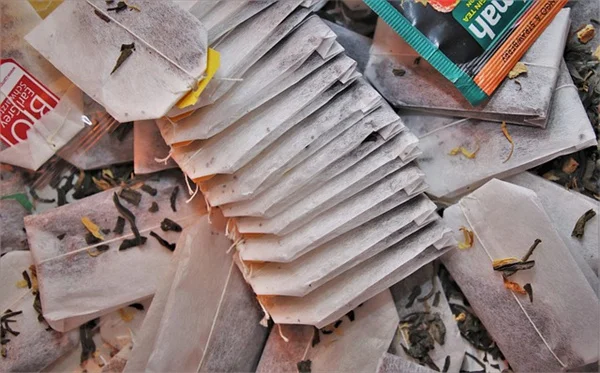Can drinking more water really help you age slower? The answer is absolutely yes! New research shows that staying properly hydrated could be your secret weapon against premature aging and chronic diseases. Scientists found that adults with optimal hydration levels had significantly lower risks for conditions like heart disease, diabetes, and dementia. Here's why it works: when you don't drink enough water, your serum sodium levels rise, and this simple change acts like an aging accelerator in your body. The good news? You can easily turn this around by making hydration a daily priority. I'll show you exactly how much water you really need (spoiler: it's probably more than you think) and share my favorite real-world hydration tricks that busy people like us can actually stick to.
E.g. :GLP-1 Microdosing for Weight Loss: What Science Says About This Risky Trend
- 1、Why Hydration is Your Secret Weapon Against Aging
- 2、Hydration Hacks for Busy People
- 3、Special Considerations for Older Adults
- 4、Electrolytes - The Hydration Dream Team
- 5、Making Hydration a Habit
- 6、When to Seek Help
- 7、The Hidden Benefits of Proper Hydration
- 8、Hydration for Fitness Enthusiasts
- 9、Hydration Myths Debunked
- 10、Seasonal Hydration Tips
- 11、Hydration Tracking Made Easy
- 12、FAQs
Why Hydration is Your Secret Weapon Against Aging
The Science Behind Water and Longevity
Did you know your water bottle might be the fountain of youth scientists have been searching for? A groundbreaking 30-year study tracking over 11,000 adults revealed something incredible - people who maintained optimal hydration levels showed slower biological aging and lower risks of chronic diseases.
Here's how it works: when you don't drink enough water, your serum sodium levels rise. Think of sodium as your body's hydration meter - normal levels should be between 135-145 mEq/L. The study found fascinating connections between these numbers and health outcomes:
| Sodium Level (mEq/L) | Health Impact |
|---|---|
| 138-140 | Lowest chronic disease risk |
| Above 142 | 21% higher premature aging risk |
| 144-146 | Significantly older biological age |
Your Body's Warning Signs
Ever felt like your mouth was as dry as the Sahara desert? That's your body's first alert system! Dehydration creeps up on you through stages:
Mild: Thirst, dry mouth (your body's polite way of saying "Hey, I need water!")
Moderate: Dark urine, headaches that feel like a tiny construction crew in your skull, and muscle cramps that make you walk like a cowboy.
Severe: This is when things get scary - no sweat or urine, dizziness that makes the room spin like a merry-go-round, and confusion that has you putting milk in the pantry and cereal in the fridge.
Hydration Hacks for Busy People
 Photos provided by pixabay
Photos provided by pixabay
How Much Water Do You Really Need?
Here's a question that might surprise you: Is eight glasses daily really the magic number? The truth is, your water needs are as unique as your fingerprint!
The National Academies recommend about 91 oz for women and 125 oz for men daily. But wait - before you start chugging like there's no tomorrow, consider these factors:
- Your weight (divide it by half for ounces needed)
- Activity level (that spin class counts double!)
- Medications (some are thirstier than others)
- Environment (summer = more water breaks)
Beyond Plain Water
Not all drinks hydrate equally - some are like pouring water into a leaky bucket! Here's the real tea on beverages:
Coffee drinkers, listen up! For every cup of joe you enjoy, you're losing about half a cup of water. And that margarita? It'll cost you a full cup of hydration. But don't worry - I'm not saying you need to give up your favorites. Just balance them with extra water throughout the day.
My personal favorite hydration booster? Coconut water - nature's sports drink with less sugar than the store-bought stuff. Just watch out for flavored versions that sneak in extra sweeteners!
Special Considerations for Older Adults
Why Aging Changes the Hydration Game
Did you know your body's water content decreases as you age? It's like your internal reservoir slowly evaporating over time. Combine that with a weaker thirst signal (your body forgets to remind you to drink), and you've got a perfect storm for dehydration.
Certain medications add fuel to the fire - laxatives, diabetes drugs, and some blood pressure medications can all increase dehydration risks. That's why it's crucial to set hydration reminders if you're over 65.
 Photos provided by pixabay
Photos provided by pixabay
How Much Water Do You Really Need?
Here's a pro tip: keep water visible everywhere! I recommend placing colorful glasses in every room - it's like creating hydration stations throughout your home. And don't forget about water-rich foods:
- Watermelon (it's in the name for a reason!)
- Cucumbers (basically crunchy water)
- Soups (delicious liquid meals)
Electrolytes - The Hydration Dream Team
What They Do For You
Ever wonder why you crave salty snacks after sweating? That's your body's clever way of asking for electrolytes! These mineral powerhouses (sodium, potassium, magnesium) help your cells hold onto water like tiny sponges.
After my morning runs, I swear by a simple electrolyte mix: water with a pinch of sea salt and a squeeze of lemon. It's cheaper than store-bought sports drinks and doesn't have all that extra sugar!
Electrolyte Showdown
Not all electrolyte sources are created equal. Here's my ranking from best to "meh":
- Coconut water (nature's perfect balance)
- Homemade mixes (you control the ingredients)
- Pedialyte (not just for kids!)
- Sports drinks (okay in moderation)
Remember that pickle juice I mentioned earlier? It might sound weird, but athletes swear by it for quick electrolyte replacement. Just don't blame me if your friends give you strange looks!
Making Hydration a Habit
 Photos provided by pixabay
Photos provided by pixabay
How Much Water Do You Really Need?
If chugging plain water feels like a chore, let's make it fun! Try these tricks:
Invest in a fancy water bottle you love - I'm partial to ones with motivational time markers. Or turn it into a game: take a sip every time you check your phone (you'll be hydrated in no time!).
One of my clients uses colored rubber bands on her bottle - each one represents a cup she needs to drink. As she finishes each serving, she removes a band. Simple, visual, and satisfying!
Hydration and Your Health Goals
Here's something that might surprise you: proper hydration can actually help with weight management. Could drinking water really help you eat less? Absolutely!
Studies show that drinking water before meals can reduce calorie intake by up to 75 calories per meal. Over a year, that could mean losing about 8 pounds - just from staying hydrated! Plus, many hunger pangs are actually thirst in disguise.
When to Seek Help
Recognizing Dangerous Dehydration
Most dehydration is easily fixable, but sometimes it's serious business. If you experience any of these red flags, it's time to call your doctor:
- No urine for 8+ hours
- Extreme dizziness when standing
- Rapid heartbeat
- Sunken eyes (like a zombie movie extra)
Special Situations
Certain conditions require extra hydration attention. If you have diabetes, kidney issues, or are undergoing chemotherapy, work with your doctor to create a personalized hydration plan. Your needs might be different from the general recommendations.
Remember that time I mentioned serum sodium levels earlier? For people with certain health conditions, monitoring these levels becomes even more crucial. It's like having an internal hydration dashboard!
The Hidden Benefits of Proper Hydration
Water's Impact on Brain Function
Ever walked into a room and forgotten why? Could dehydration be messing with your memory? Research shows that losing just 1-2% of your body's water can impair cognitive performance. That's like trying to think through a thick fog!
In a fascinating study at the University of Connecticut, mildly dehydrated students performed 12% worse on memory tests and showed slower reaction times. The good news? Drinking water improved their scores within 45 minutes. I keep a water bottle on my desk during work - it's like giving my brain a constant tune-up!
Hydration and Mood Connection
Feeling grumpy for no reason? Your water intake might be the culprit. A study published in the Journal of Nutrition found that women who were just 1.36% dehydrated reported more fatigue, confusion, and anger. That's right - your afternoon slump might just be your body begging for H2O!
Here's a fun experiment I tried: for one week, I tracked my water intake and mood. On days I drank enough, I felt like a cheerful morning show host. On dehydrated days? Let's just say I wouldn't want to be around me. The difference was night and day!
Hydration for Fitness Enthusiasts
Pre-Workout Hydration Strategies
You wouldn't drive a car without gas, so why exercise without proper hydration? For optimal performance, start hydrating 2-3 hours before your workout. I follow this simple pre-exercise routine:
2 hours before: Drink 16-20 oz of water
30 minutes before: Another 8 oz
During: 7-10 oz every 10-20 minutes
Pro tip: Weigh yourself before and after intense workouts. For every pound lost, drink 16-24 oz of water. It's like your body's personal hydration calculator!
Post-Workout Recovery
That post-exercise glow feels great, but are you properly replenishing? Sweating loses more than just water - you're also shedding electrolytes. Here's my go-to recovery drink recipe:
- 16 oz coconut water
- 1/2 teaspoon sea salt
- 1 tablespoon honey
- Squeeze of lime
It's cheaper than store-bought recovery drinks and tastes way better. Plus, you can adjust the sweetness to your liking - no artificial junk!
Hydration Myths Debunked
The Truth About Clear Urine
We've all heard that perfectly clear urine means you're well-hydrated, right? Well, that's only half the story. While dark yellow urine definitely signals dehydration, crystal-clear pee might mean you're overdoing it.
Aim for pale yellow - think lemonade rather than apple juice. Overhydration can actually flush out essential electrolytes. I learned this the hard way during marathon training when I drank so much water I felt worse than when I started!
Coffee and Tea Dehydration Myth
Time to spill the tea about tea (and coffee)! While caffeine is a mild diuretic, the water in your morning cup more than makes up for it. Unless you're drinking espresso shots like water, your daily coffee habit isn't dehydrating you.
Here's the breakdown: for every cup of coffee, you might lose about half a cup of extra water. But since you're getting a full cup of liquid, you're still coming out ahead. So go ahead and enjoy that second cup - just maybe skip the extra shot if you're feeling jittery!
Seasonal Hydration Tips
Summer Survival Guide
When temperatures rise, your hydration needs skyrocket. I learned this during a brutal Arizona summer when I was drinking 3 liters daily and still feeling parched. Here's what works for me in hot weather:
Freeze water bottles overnight - they'll stay cold for hours as they melt. Add frozen fruit instead of ice cubes for flavor and vitamins. Wear light-colored clothing (dark colors absorb heat like a sponge). And don't forget about your skin - misting sprays feel amazing in the heat!
Winter Hydration Challenges
Who thinks about hydration when it's freezing outside? Turns out, winter dehydration is sneakier than summer's. Between dry indoor air and decreased thirst signals, many people become chronically dehydrated in cold months.
My winter hydration hacks: warm herbal teas count toward your daily intake. Use a humidifier to combat dry air. Eat more soups and stews. And set phone reminders to drink - when you're not sweating, it's easy to forget!
Hydration Tracking Made Easy
Tech Tools for Water Intake
In our smartphone world, why not use technology to stay hydrated? I've tested dozens of hydration apps, and here are my top picks:
| App | Best Feature | Cost |
|---|---|---|
| WaterMinder | Apple Watch integration | $4.99 |
| Hydro Coach | Customizable reminders | Free |
| Plant Nanny | Fun plant-growing game | Free with upgrades |
My personal favorite is Plant Nanny - nothing motivates me like keeping a virtual plant alive! Plus, the cute animations make hydration feel like play rather than work.
Low-Tech Tracking Methods
Not a tech person? No problem! Old-school methods work just as well. Try the rubber band trick: place 8 bands on your water bottle in the morning and remove one with each glass finished.
Or use a simple checklist on your fridge - there's something satisfying about checking off those water glasses throughout the day. I've even seen people use marbles - transfer one from a "full" jar to an "empty" jar with each serving. Get creative with what works for you!
E.g. :Good hydration linked to healthy aging | NHLBI, NIH
FAQs
Q: How does hydration actually slow down aging?
A: Here's the fascinating science behind it: when you're well-hydrated, your serum sodium levels stay in the optimal range (135-145 mEq/L). Researchers discovered that people with levels above 142 showed faster biological aging markers. Proper hydration helps your cells function better, reduces inflammation (a major aging factor), and supports organ function. Think of water as the oil that keeps your body's engine running smoothly - without it, everything works harder and wears out faster. We've seen in studies that well-hydrated adults often have younger-looking skin, better cognitive function, and more energy because their cells aren't constantly stressed from dehydration.
Q: What are the best drinks for hydration besides water?
A: While water is king, some other great options include coconut water (packed with natural electrolytes), herbal teas, and even milk (it's about 87% water!). But here's what surprised me most - foods like watermelon, cucumbers, and soups count too! About 20% of our daily hydration comes from food. Just be careful with drinks that can actually dehydrate you - for every cup of coffee or alcoholic drink, you should add an extra half to full cup of water to compensate. My personal go-to is sparkling water with lemon - it feels fancy but keeps me hydrated without extra calories or sugar.
Q: How much water should I really be drinking daily?
A: Forget the old "8 glasses a day" rule - your needs are personal! The National Academies recommend about 91 oz for women and 125 oz for men, but here's an easy formula I use with my clients: take half your body weight in pounds, and drink that many ounces. So if you weigh 160 lbs, aim for 80 oz daily. But remember - activity level, medications, and environment all affect your needs. The best gauge? Your urine should be light yellow (like lemonade, not apple juice). I tell my patients to carry a marked water bottle and sip throughout the day rather than chugging large amounts at once.
Q: Why are older adults at higher risk for dehydration?
A: As we age, three key things happen: first, our body water content decreases (from about 60% to 50% in older adults). Second, our thirst signals weaken - your body literally forgets to tell you you're thirsty! Third, many common medications (like diuretics or blood pressure drugs) increase fluid loss. That's why I recommend setting hydration reminders if you're over 65. One clever trick? Place colorful glasses of water in every room you frequent - it serves as both a visual reminder and makes hydration convenient.
Q: What are the signs I might be chronically dehydrated?
A: Many people walk around mildly dehydrated without realizing it! Watch for these subtle signs: constant fatigue (even after enough sleep), dry skin that moisturizer can't fix, frequent headaches, or muscle cramps. More serious symptoms include dizziness, rapid heartbeat, or confusion. A quick test? Pinch the skin on the back of your hand - if it doesn't snap back quickly, you might need more fluids. The scary part is that by the time you feel thirsty, you're already dehydrated. That's why I recommend making hydration a habit rather than waiting for thirst signals, especially as we get older.


